Difference between revisions of "Pic16f877a MPLABx Setup"
(Created page with "Category:Starter PIC16F877") |
|||
| Line 1: | Line 1: | ||
[[Category:Starter PIC16F877]] | [[Category:Starter PIC16F877]] | ||
| + | |||
| + | In this tutorial we will see how to setup a Mplabx project to generate .hex file for Pic16f877a<br><br> | ||
| + | [[File:Pic16F877A_MplabX_Setup00.png]]<br><br> | ||
| + | |||
| + | =Keil Setup Steps= | ||
| + | <b>Step1:</b> Open the Keil software and select the New Microvision project from Project Menu as shown below.<br> | ||
| + | [[File:Pic16F877A_MplabX_Setup00.png]]<br><br> | ||
| + | |||
| + | <b>Step2:</b> Browse to your project folder and provide the project name and click on save.<br> | ||
| + | [[File:Pic16F877A_MplabX_Setup01.png]]<br><br> | ||
| + | |||
| + | <b>Step3:</b> Once the project is saved a new pop up “Select Device for Target” opens, Select the controller(NXP:LPC1768) and click on OK.<br> | ||
| + | [[File:Pic16F877A_MplabX_Setup02.png]]<br><br> | ||
| + | |||
| + | <b>Step4:</b> Select the controller(NXP:LPC1768) and click on OK.<br> | ||
| + | [[File:Pic16F877A_MplabX_Setup03.png]]<br><br> | ||
| + | |||
| + | <b>Step5:</b> As LPC1768 needs the startup code, click on <b>Yes</b> option to include the <b>LPC17xx Startup</b> file.<br> | ||
| + | [[File:Pic16F877A_MplabX_Setup04.png]]<br><br> | ||
| + | |||
| + | <b>Step6:</b> Create a new file to write the program.<br> | ||
| + | [[File:Pic16F877A_MplabX_Setup05.png]]<br><br> | ||
| + | |||
| + | <b>Step7:</b> Type the code or Copy paste the below code snippet.<br> | ||
| + | [[File:Pic16F877A_MplabX_Setup06.png]] | ||
| + | <html> | ||
| + | <script src="https://gist.github.com/SaheblalBagwan/cb2cf78aadc724737d79.js"></script> | ||
| + | </html> | ||
| + | <br> | ||
| + | |||
| + | <b>Step8:</b> After typing the code save the file as <b>main.c</b>.<br> | ||
| + | [[File:Pic16F877A_MplabX_Setup07.png]]<br><br> | ||
| + | |||
| + | <b>Step9:</b> Add the recently saved file to the project.<br> | ||
| + | [[File:Pic16F877A_MplabX_Setup08.png]]<br><br> | ||
| + | |||
| + | <b>Step10:</b> Add the main.c along with system_LPC17xx.c.<br> | ||
| + | [[File:Pic16F877A_MplabX_Setup09.png]]<br><br> | ||
| + | |||
| + | <b>Step11:</b> Build the project and fix the compiler errors/warnings if any.<br> | ||
| + | [[File:Pic16F877A_MplabX_Setup10.png]]<br><br> | ||
| + | |||
| + | <b>Step12:</b> Code is compiled with no errors. The <b>.hex</b> file is still not generated.<br> | ||
| + | [[File:Pic16F877A_MplabX_Setup11.png]]<br><br> | ||
| + | |||
| + | =Enable Hex File Generation= | ||
| + | <b>Step13:</b> Click on <b>Target Options</b> to select the option for generating .hex file.<br> | ||
| + | [[File:Pic16F877A_MplabX_Setup12.png]]<br><br> | ||
| + | |||
| + | <b>Step14:</b> Set IROM1 start address as 0x0000.<br> | ||
| + | [[File:Pic16F877A_MplabX_Setup13.png]]<br><br> | ||
| + | |||
| + | <b>Step15:</b> Enable the option to generate the .hex file<br> | ||
| + | |||
| + | |||
| + | <b>Step16:</b> .Hex file is generated after a rebuild.<br> | ||
| + | |||
| + | |||
| + | <b>Step17:</b> Check the project folder for the generated .hex file.<br> | ||
| + | |||
| + | <br><br> | ||
| + | |||
| + | =Uploading the Hex file= | ||
| + | After generating the .hex file check this tutorial for [[LPC1768: Uploading Hex and Bin files|uploading Hex and Bin files.]] | ||
| + | <br><br> | ||
Revision as of 13:56, 22 April 2016
In this tutorial we will see how to setup a Mplabx project to generate .hex file for Pic16f877a
File:Pic16F877A MplabX Setup00.png
Keil Setup Steps
Step1: Open the Keil software and select the New Microvision project from Project Menu as shown below.
File:Pic16F877A MplabX Setup00.png
Step2: Browse to your project folder and provide the project name and click on save.
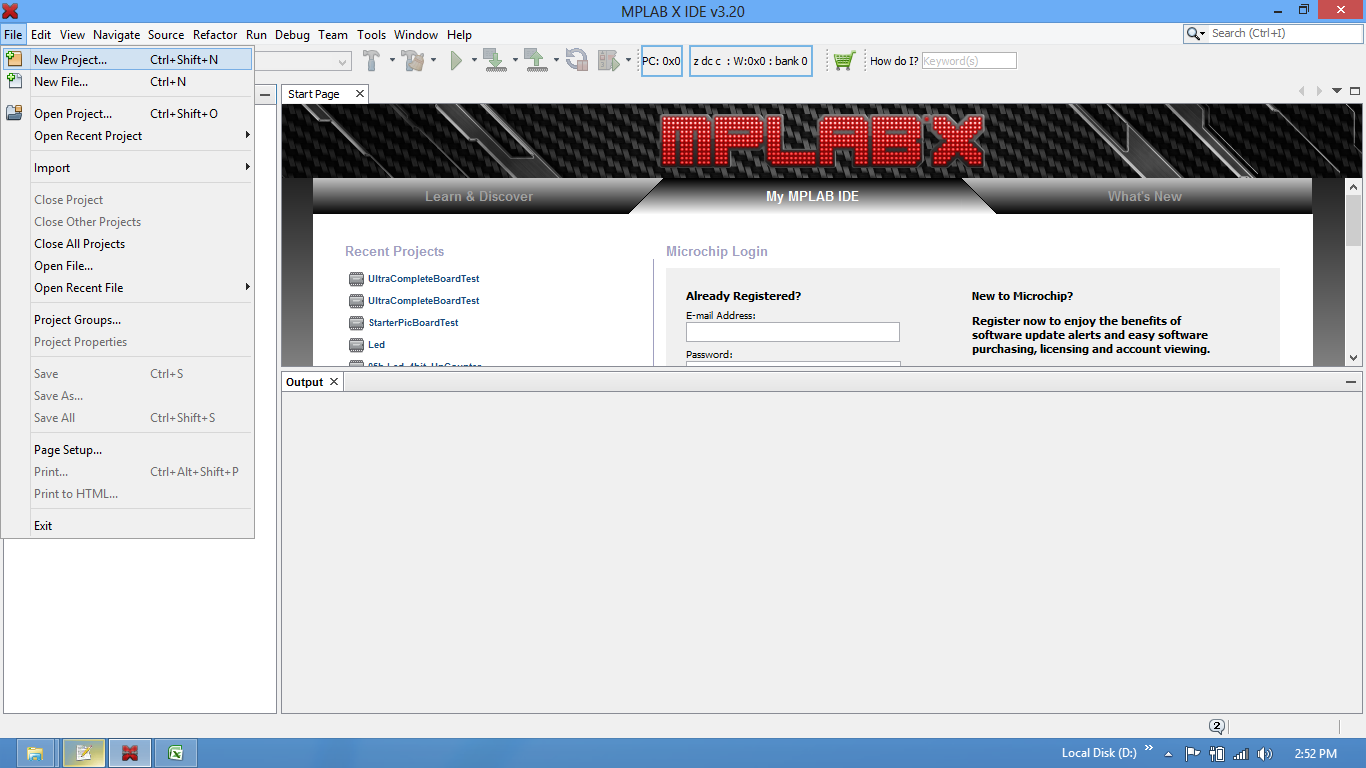
Step3: Once the project is saved a new pop up “Select Device for Target” opens, Select the controller(NXP:LPC1768) and click on OK.
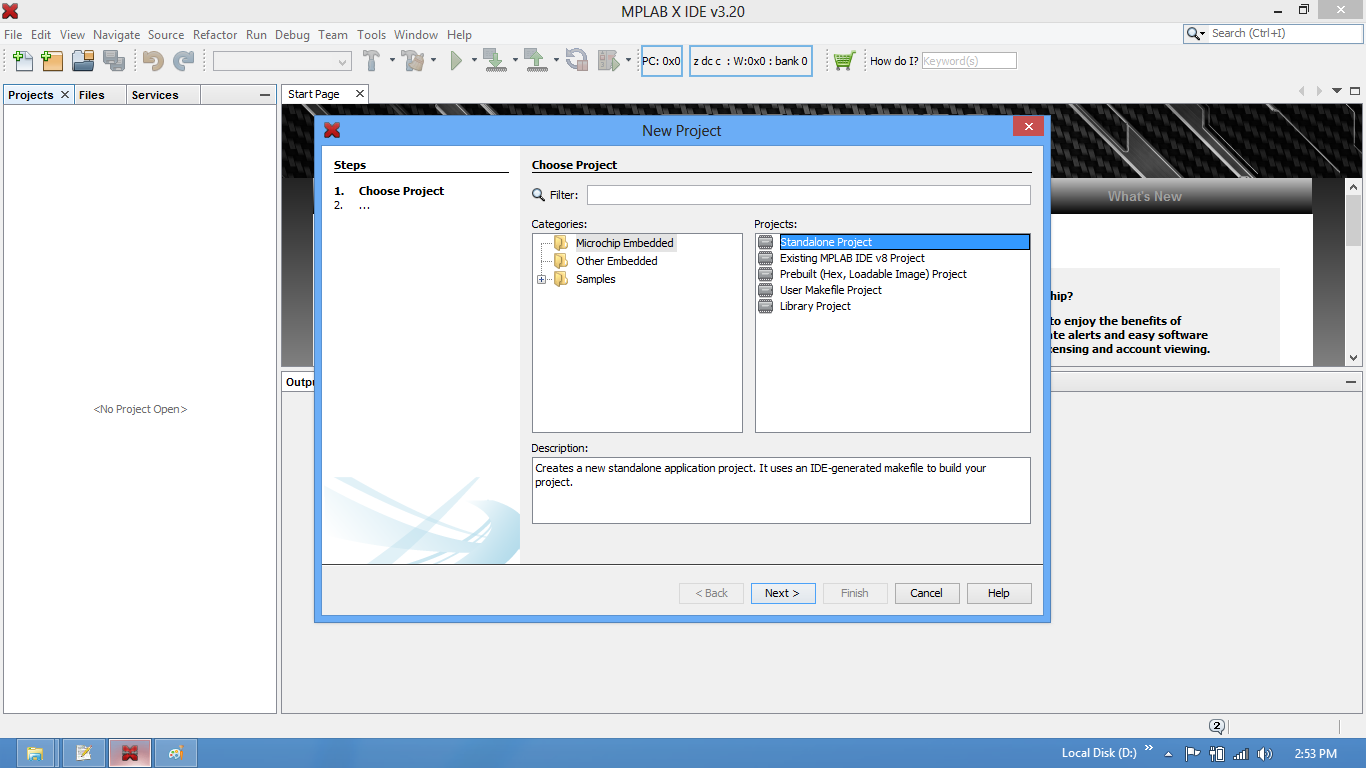
Step4: Select the controller(NXP:LPC1768) and click on OK.
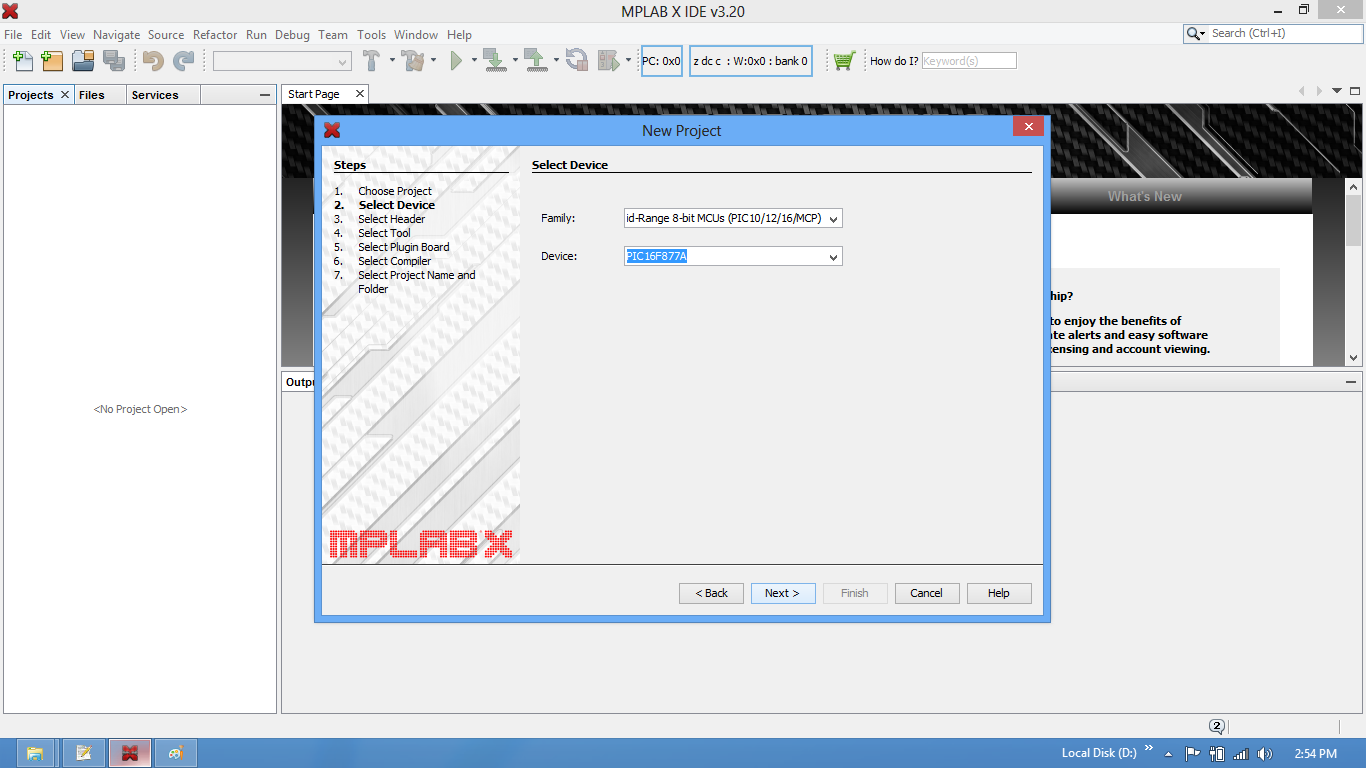
Step5: As LPC1768 needs the startup code, click on Yes option to include the LPC17xx Startup file.
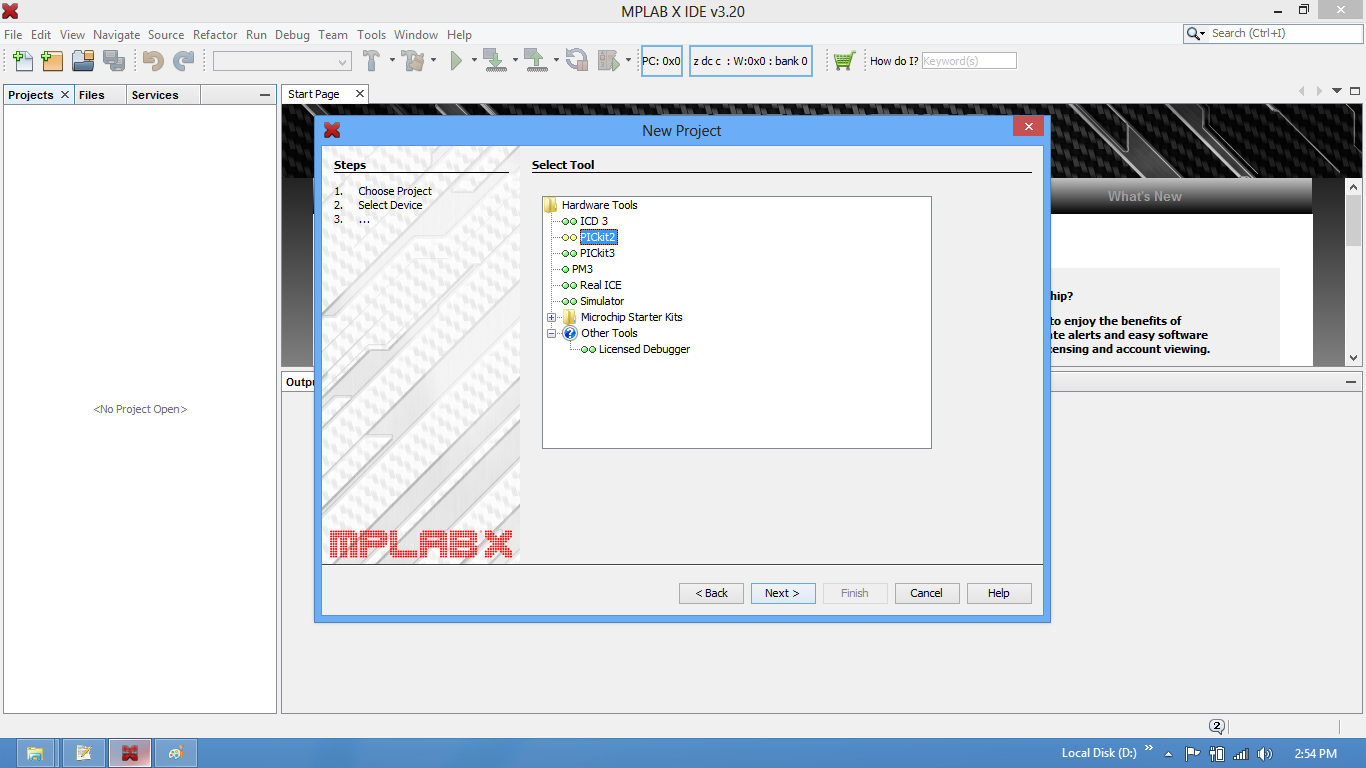
Step6: Create a new file to write the program.
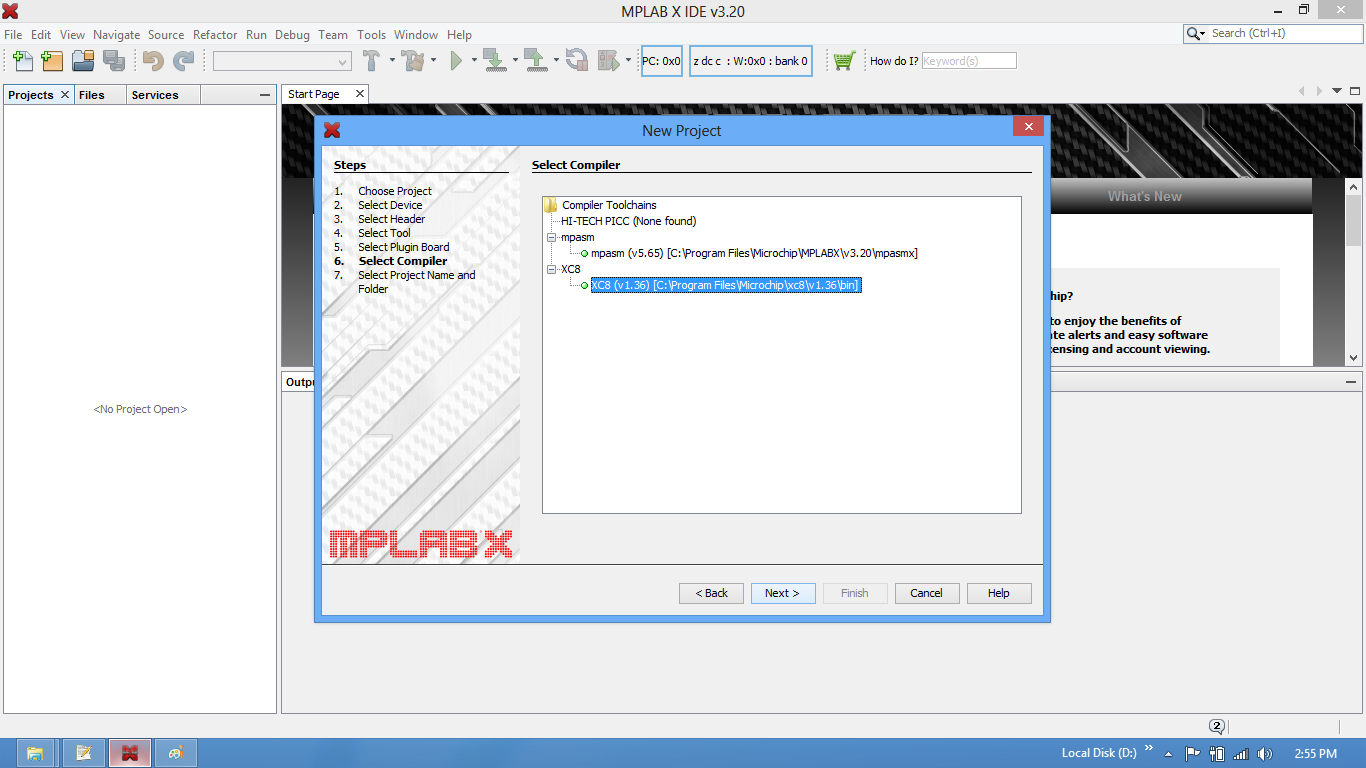
Step7: Type the code or Copy paste the below code snippet.
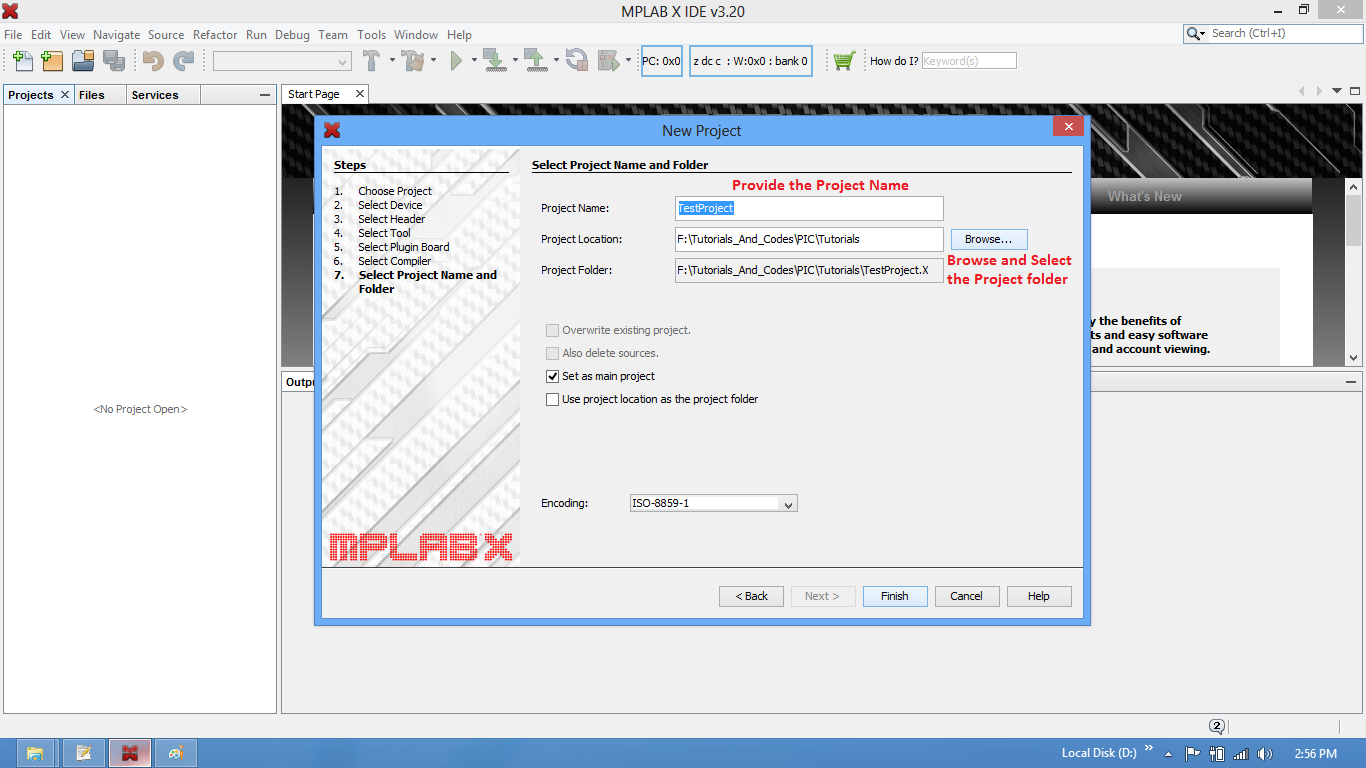
Step8: After typing the code save the file as main.c.
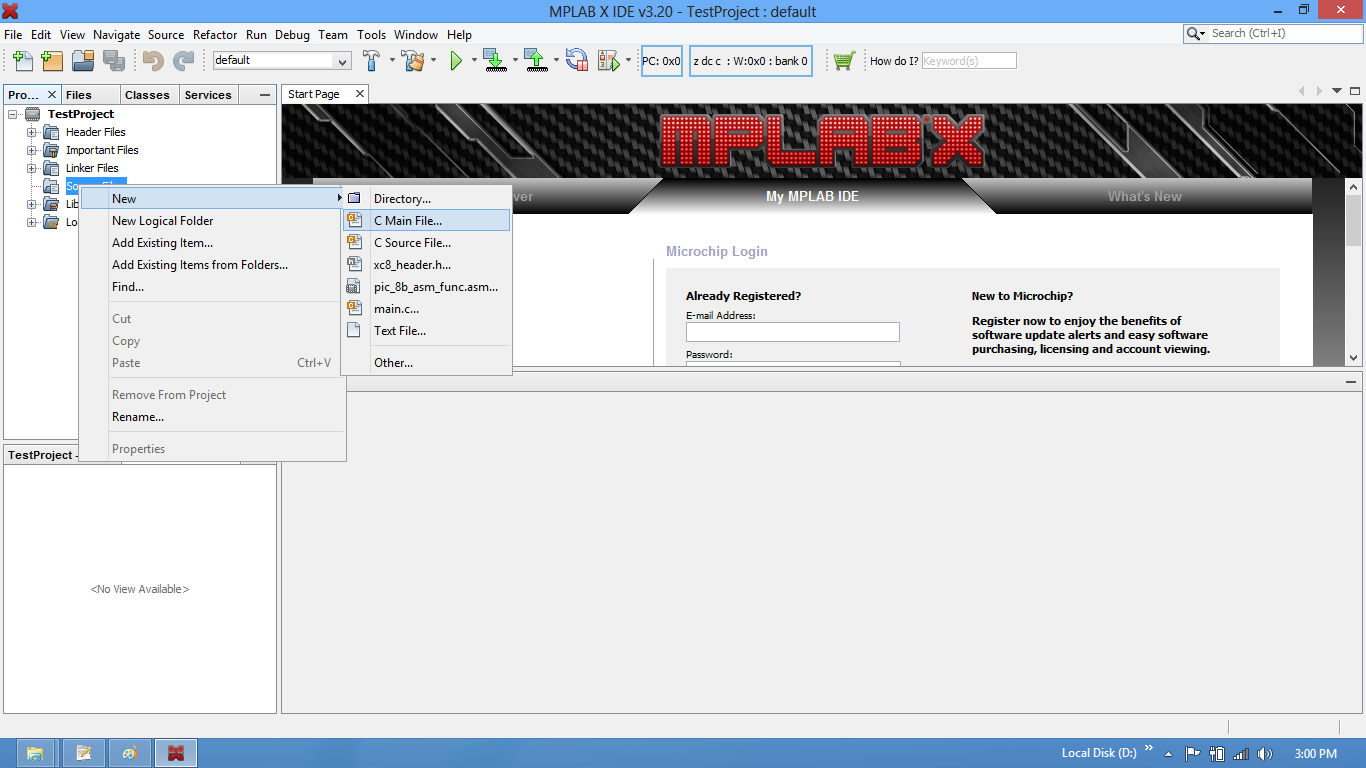
Step9: Add the recently saved file to the project.
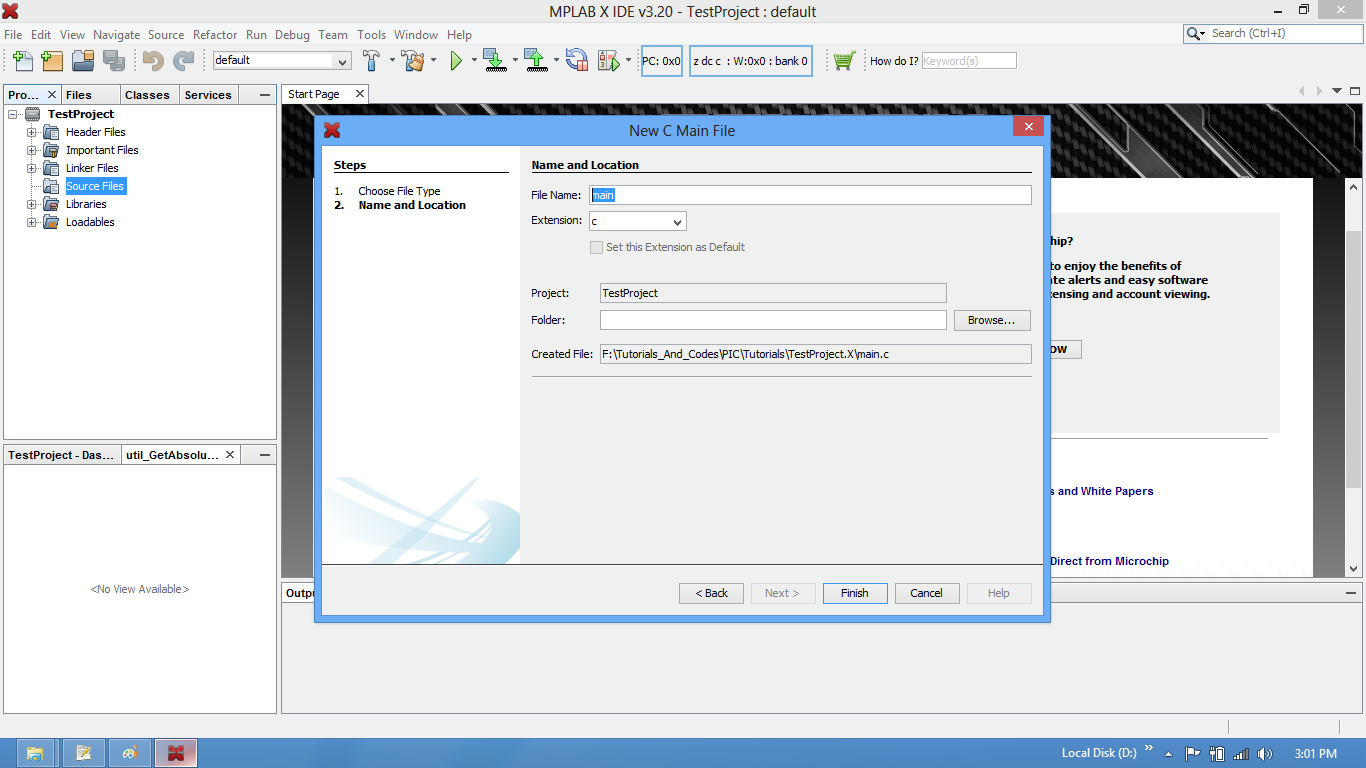
Step10: Add the main.c along with system_LPC17xx.c.
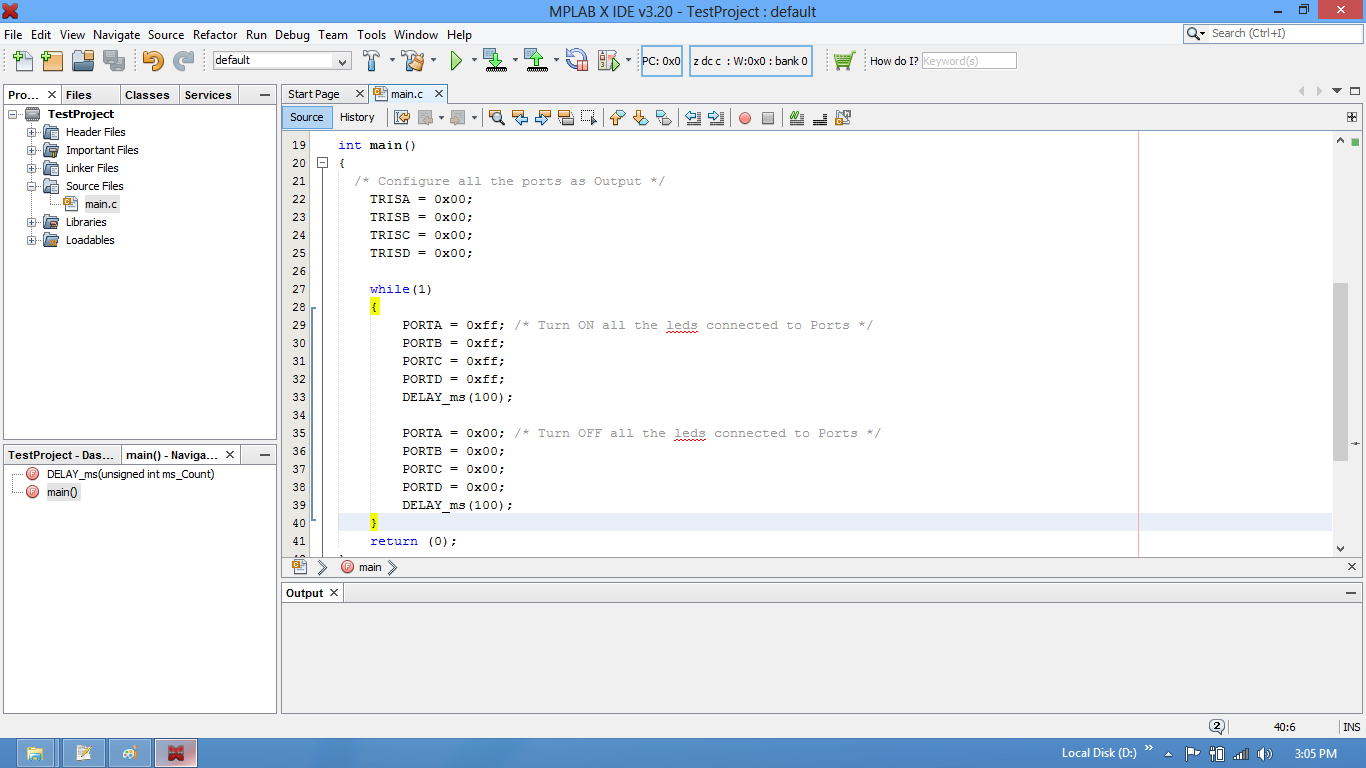
Step11: Build the project and fix the compiler errors/warnings if any.
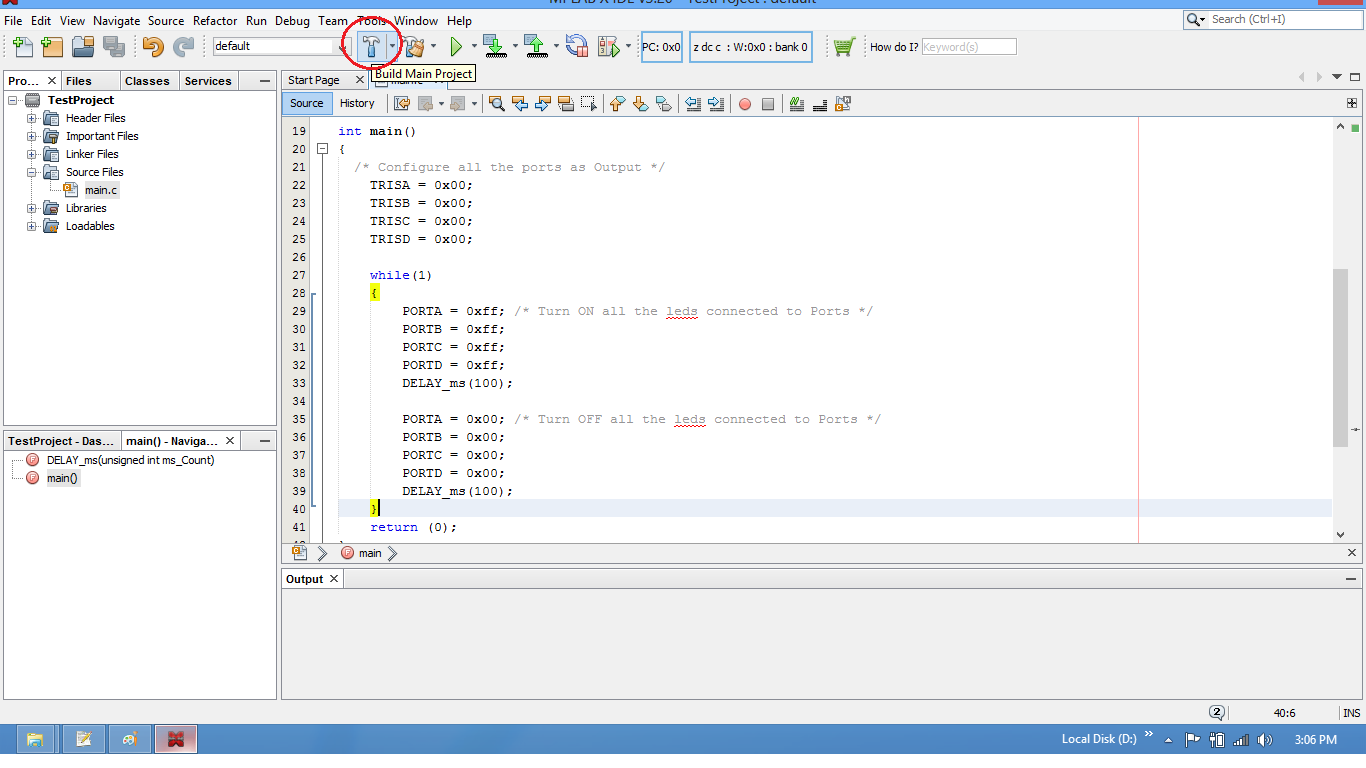
Step12: Code is compiled with no errors. The .hex file is still not generated.
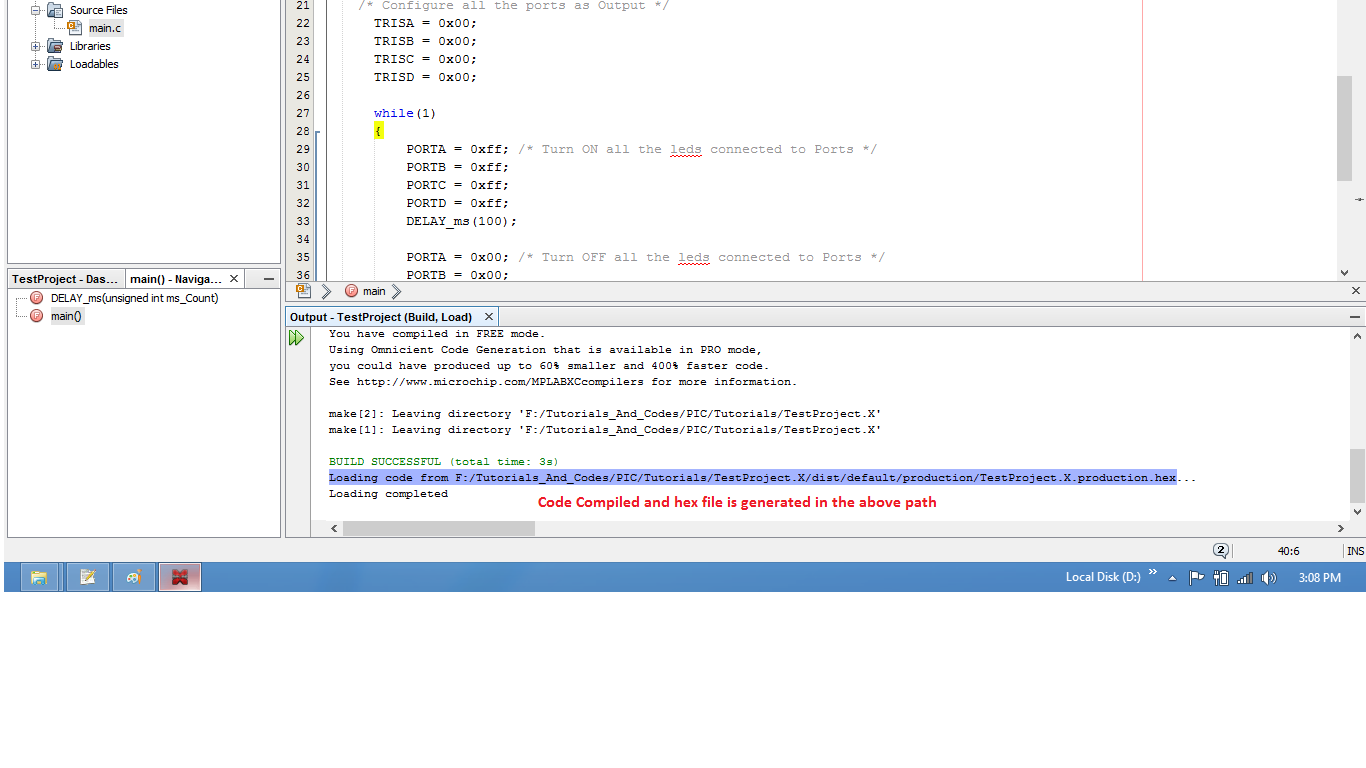
Enable Hex File Generation
Step13: Click on Target Options to select the option for generating .hex file.
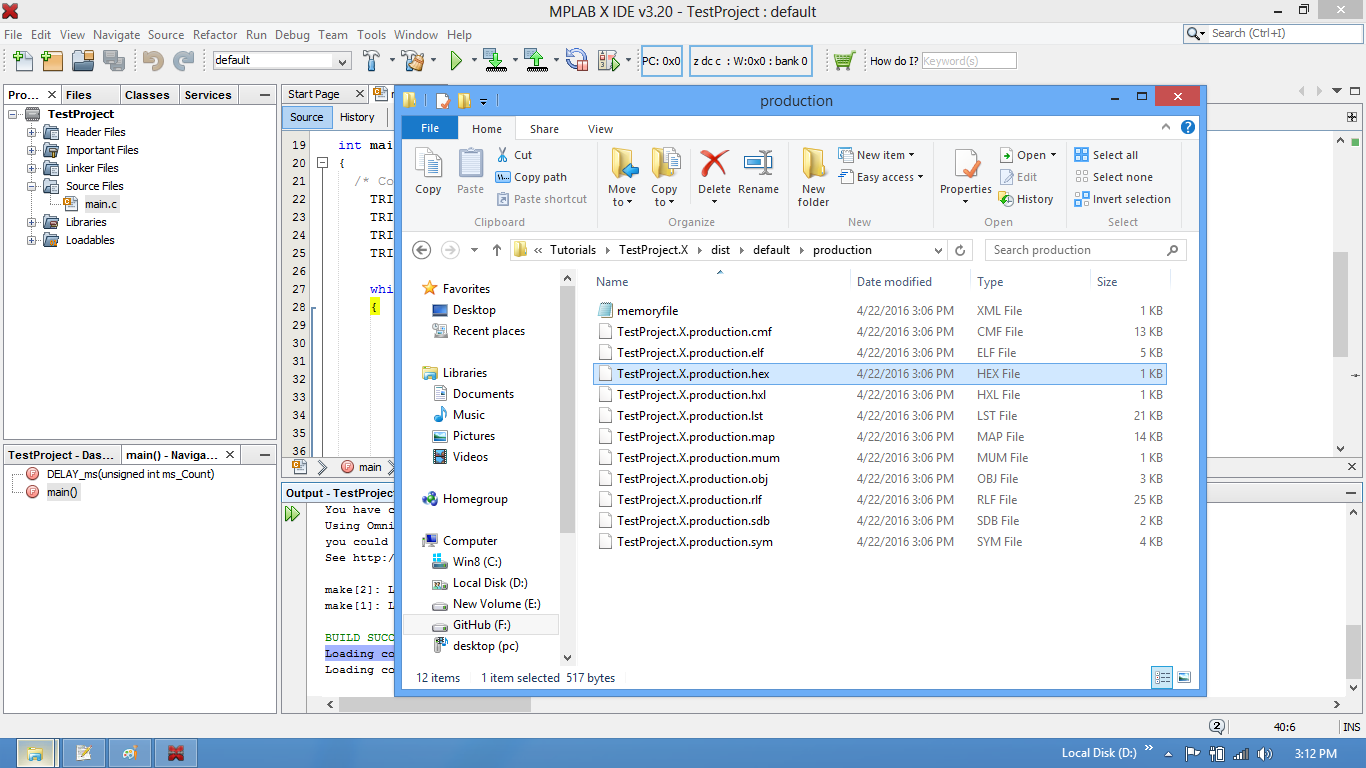
Step14: Set IROM1 start address as 0x0000.
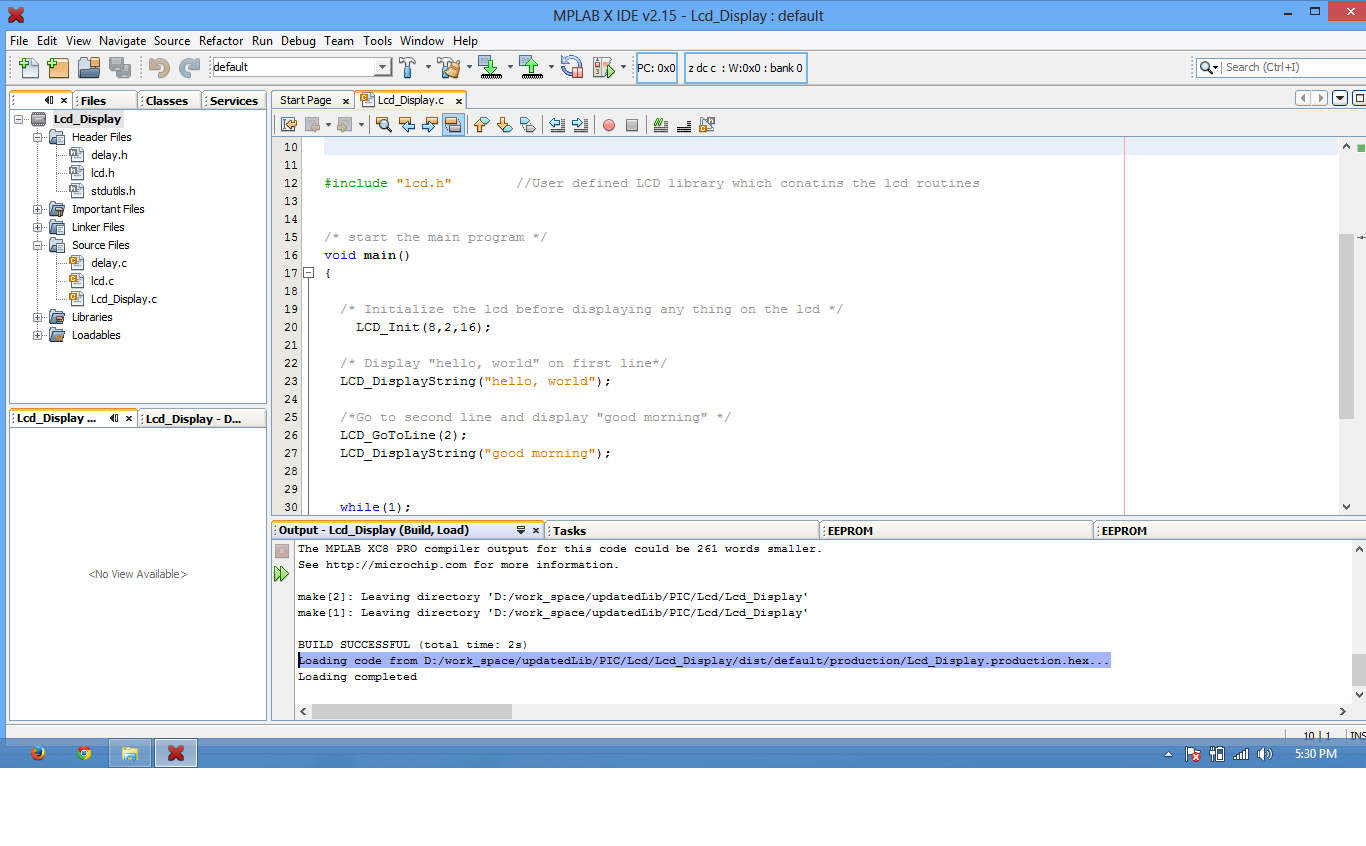
Step15: Enable the option to generate the .hex file
Step16: .Hex file is generated after a rebuild.
Step17: Check the project folder for the generated .hex file.
Uploading the Hex file
After generating the .hex file check this tutorial for uploading Hex and Bin files.
